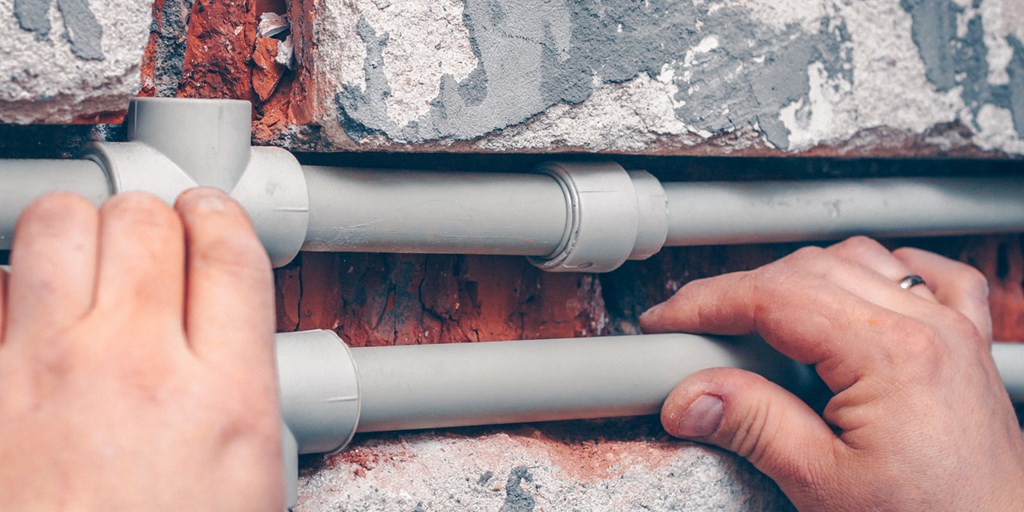
The plumbing industry seeks plastic pipes that rank high in longevity. Standard and intricate pipe systems depend on the advanced properties of complex materials to meet strict environmental and industry standards. High-grade thermoplastics eliminate traditional metal-based plumbing deficiencies such as corrosion, scale deposits, and contamination. Specialty polymers ensure plastic piping for plumbing has refined components that maintain peak performance and optimal customer safety.
What is Injection Molding?
Injection molding is a manufacturing method used to mass produce identical plastic parts. Molten plastic goes inside a mold to create a part in the shape of the mold cavity, creating a physical representation of molded plastic parts. It's a widely used method for manufacturing parts globally. Health, aerospace, cosmetics, automobile, toy, and many other industries benefit from plastic injection molding because this process creates complex parts with precision.
Consumers can use commodity resins or engineered resins depending on their project specifications. For example, commodity resins are the better option when applications are calling for lower pressure and piece prices need to remain low, and all parts must be identical in size and other metrics. However, engineered resins are the best choice if you require durable, mechanical, chemically resistant and thermal properties.
How Plastic Injection Molding Benefits Plumbing Systems
Specialty polymers ensure reliability and maximum efficiency for water systems parts such as valves, cartridges, faucets, boiler pump components, pipes, and fittings. Converting to specialty polymers for plumbing allows more freedom and sophistication with injectable and moldable polymer-based plumbing parts. Moldable polymers can adapt to thin or fragile walls, particularly when it comes to pumps, Polyphenylene Sulfide (PPS) water valves, heat meters, boiler components, tanks, threaded fittings, and cartridges.
Engineered resins come equipped with long-term hydrostatic strength (LTHS), meaning they can withstand the harshest conditions and endure, adapt, and deflect hot water and steam for extended periods. Also, today's complex plumbing systems require high-quality materials that can withstand a wide range of temperatures. Polyether Ether Ketone (PEEK), in particular, is a high-temperature thermoplastic resistant to chemical and fatigue environments. It's ideal for thermal plastic applications where combustion, thermal, and chemical performance are critical and can handle temperatures as high as 482 degrees Fahrenheit or higher.
Polymers used in plumbing, in general, are better for the environment. In 2017, Aliaxis conducted life cycle assessments (LCAs) of polyethylene (PE) and polyvinyl chloride (PVC) and found that plastic pipe systems are:
- Resistant to Corrosion: Corrosion is the most pressing issue associated with metal plumbing systems. Corrosion happens inside and outside of pipes, affecting their hydraulic efficiency. However, plastic pipes do not corrode and resist most strong acids such as alkalis and aqueous solutions such as brine, mineral oil, fats, and alcohol.
- Less Risk of a Leakage: A peer-reviewed scholarly article found that pipe failures result in billions of liters lost from water networks each day. Plastic PVC and PE pipes are flexible and aren't prone to cracking like metal or concrete alternatives.
- Recyclable: Plastic pipes can last up to 100 years or more. Plastic pipes are environmentally friendly because engineers can recycle or rework plastic pipes into other PVC and PE products when they reach the end of their life cycle.
Which Plastic Piping Material is Best for Plumbing Systems?
Every polymer isn't applicable for all plumbing needs. For example, PVC applies to drain or vent lines versus water supply. It's resistant to high water pressure but doesn't perform well in high temperatures. Acrylonitrile Butadiene Styrene (ABS) is like PVC, but it's a softer and darker material than PVC and provides greater strength.
High-density polyethylene is durable enough to meet most, if not all, plumbing needs. It also reduces water pressure since it has a low coefficient of friction, enabling water to flow freely. Cross-linked polyethylene works well with home plumbing systems for hot and cold-water pipes and freshwater kitchen and bathroom systems.
Questions that you'll have to ask to choose the most appropriate plastic for injection molding include:
• Where will I use the part?
• How long is the lifespan of the operational part?
• What pressure or tension is involved in the application?
• Do aesthetics matter, or is performance more vital?
• What are the budget limits on the application?
• What are the mechanical and chemical strengths that plastic needs to have?
• How does the plastic behave when heating and cooling in terms of thermal expansion and shrinkage, melting temperature range, and degradation temperature?
• What interactions will the plastic have with air, other plastics, and chemicals?
Do you want a high-performance and environmentally friendly plumbing system that will cut the costs of metal alternatives? Contact our experts so we can walk you through the capabilities of the custom plastic injection molding process.
Experience the Thogus Difference
Connect with us today to discuss your project and to learn more about our capabilities.